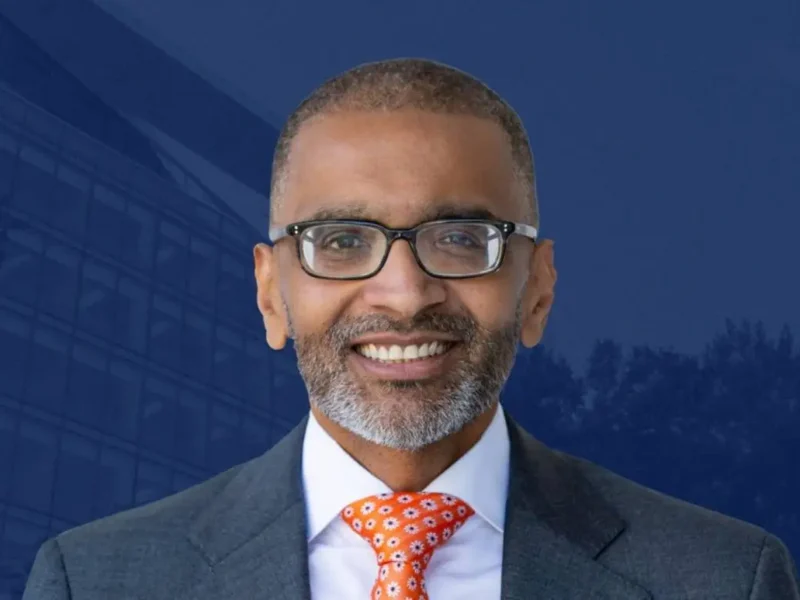Indian Americans, Indians, On ‘Time 100 Climate’ List
NEW YORK, NY (IANS) – Nine prominent leaders hailing from India have been named to the ‘Time 100 Climate’, the magazine’s first-ever list of the world’s most influential leaders driving business to real climate action.
The list, which includes CEOs, founders, philanthropists, musicians, policymakers, and government officials from across the world, comes ahead of the 2023 UN Climate Change Conference, scheduled to take place in the United Arab Emirates from November 30.
“It’s fair to say climate leadership is embedded across all of our coverage today. But we believe more could be done to draw attention to the people who are shaping and leading climate action,” Time said, releasing the list on November 16.
According to Time, Ajay Banga, who began his five-year term as World Bank Group president in June, is ushering in a new mission for the institution — eradicating poverty while fighting climate change. Banga is calling for more money to “widen the aperture” of the Bank to structure incentives and loans for projects that lower emissions and advance sustainable development. He is also pushing to reduce how long it takes to approve projects, so that billions of dollars can quickly reach the countries that need it.
Some 70 per cent of the vehicles on India’s roads are mopeds and scooters, and Bhavish Aggarwal is leading the path to electrifying them. He is the CEO and co-founder of Ola Electric, India’s largest maker of electric two-wheel scooters, and a market leader in micro mobility generally, from taxis to ridesharing. This year, Ola launched its most affordable electric scooter ever, priced at Rs 79,999.
Rajiv J. Shah is president of The Rockefeller Foundation, which now works to ensure that all initiatives and investment strategies are focused through a climate lens. This year, the Foundation partnered with the Global Energy Alliance for People and Planet to launch the Coal to Clean Credit Initiative. The aim is to develop a new carbon finance standard to spur a just transition away from coal-fired power plants to renewable energy in emerging economies.
Geeta Aiyer is founder and president of Boston Common Asset Management, a woman-led, employee-owned sustainable investment firm with nearly $5 billion in assets under management. The firm prioritizes investment in climate change mitigation and uses shareholder engagement to push portfolio companies toward more sustainable business practices.
Jigar Shah is director of the US Department of Energy Loan Programs Office, which is responsible for the public investment of hundreds of billions of dollars into clean infrastructure and energy projects. “The solutions to meeting the President’s decarbonization goals are already within our grasp. It’s a matter of doing rather than waiting for a breakthrough,” Shah told Time.
Manoj Sinha is CEO and co-founder of Husk Power Systems, which operates 200 minigrids across Asia and Africa, and reached profitability in India and Nigeria this year. According to Sinha, the most important climate legislation that could pass in the next year is the imposition of a uniform carbon tax.
M. Sanjayan is a conservation scientist and CEO of Conservation International, a non-profit working with governments and companies to conserve nature, primarily in the Global South. Sanjayan’s skills as a science communicator have helped CI facilitate powerful partnerships for environmental protection.
Seema Wadhwa is executive director for environmental stewardship for Kaiser Permanente, one of the largest health care providers in the US. By 2050, it aims to be net zero. Under Wadhwa’s leadership, this year Kaiser Permanente’s office in Santa Rosa, California, was recognized as the country’s first net-zero medical facility.
Amit Kumar Sinha is managing director and CEO of Mahindra Life spaces, the real estate and infrastructure development arm of Indian conglomerate company Mahindra Group. Since 2013, Mahindra Life spaces says it has had an entirely green portfolio, prioritizing water efficiency, passive energy design, renewables, and more.






VIJAY
/
Well, Times missed me!
November 21, 2023Pradeep Srivastava
/
It is gratifying to learn that nine prominent leaders hailing from India have been named to the ‘Time 100 Climate’, the magazine’s first-ever list of the world’s most influential leaders driving business to real climate action.
Unfortunately, according to pewresearch.org of August 9, 2023, only about one-in-four Republicans (23%) consider climate change a major threat, a share that’s almost identical to 10 years ago.
Fortunately, however, nearly eight-in-ten Democrats (78%) describe climate change as a major threat to the country’s well-being, up from about six-in-ten (58%) a decade ago.
Overall, a majority of U.S. adults (54%) describe climate change as a major threat to the country’s well-being. This share is down slightly from 2020 but remains higher than in the early 2010s.
Concern over climate change has also risen internationally, as shown by separate Pew Research Center polling across 19 countries in 2022. People in many advanced economies express higher levels of concern than Americans. For instance, 81% of French adults and 73% of Germans describe climate change as a major threat.
While a majority of Americans view climate change as a major threat, it is a lower priority than issues such as strengthening the economy and reducing health care costs.
The following is an excerpt from an excellent un.org article on “United Nations; Climate Action”, which provides in brief what climate change is, followed by my own response.
What is Climate Change?
Climate change refers to long-term shifts in temperatures and weather patterns. Such shifts can be natural, due to changes in the sun’s activity or large volcanic eruptions. But since the 1800s, human activities have been the main driver of climate change, primarily due to the burning of fossil fuels like coal, oil and gas.
Burning fossil fuels generates greenhouse gas emissions that act like a blanket wrapped around the Earth, trapping the sun’s heat and raising temperatures.
The main greenhouse gases that are causing climate change include carbon dioxide and methane. These come from using gasoline for driving a car or coal for heating a building, for example. Clearing land and cutting down forests can also release carbon dioxide. Agriculture, oil and gas operations are major sources of methane emissions. Energy, industry, transport, buildings, agriculture and land use are among the main sectors causing greenhouse gases.
My response: One, there is a need to switch to all-electric cars. Additionally, the government needs to provide tax breaks to businesses and people who decide to buy all-electric cars, irrespective of their financial status. Two, the businesses need to allow as many workers to work from home as possible, so as to minimize traffic emissions and traffic jams, and foster work life balance. Three, people should be discouraged to burn coal or wood in the fireplaces, which are obsolete anyway in the wake of the ubiquitous central heating systems. The building codes need to be revised so as to prohibit building fireplaces in the future buildings. Four, the government needs to incentivize homeowners and home builders to resort to renewable sources of energy like sun and wind. Five, cleaning land and cutting down forests, especially to build huge mansions need to be discouraged by charging homeowners a higher rate of property taxes for bigger houses. Just as we have a progressive income tax system, we also need to have a progressive property tax. Six, in order to minimize methane emissions, farmers in the businesses of providing animal-based food should pay higher property taxes than those who provide grains, fruits, and vegetables. Seven, renewable power plants, generating clean energy through natural sources, such as wind farms, photovoltaic solar plants, hydroelectric power plants, thermal power stations (biomass, solar thermal, and geothermal), and marine power plants (marine power plants and wave power plants), need to be built to replace coal-fired and natural gas fired power plants and the government incentives will be necessary to make that happen. Last, but not the least, if we only buy what we need instead of buying what we want, a lot of climate change issues can be addressed because there will be less strain on the manufacturing sector, resulting in energy saving, emissions reduction, environmental protection, and heath improvement.
November 27, 2023